


http://jewishsurvivors.blogspot.com/
Thursday, March 27, 2008
Save Isaac Hersh: Standoff Between the US Embassy and the Jamaican Government
Save Isaac Hersh:
Standoff Between the US Embassy and the Jamaican Government
© (2008) The Awareness Center
According to a reliable source a great deal has been happening over the last 24 hours in the case of Isaac Hersh, a sixteen-year-old boy being held at dangerous reform school/torture chamber, called Tranquility Bay, which located in St. Elizabeth, Jamaica.
Last night a private jet carrying a delegation of three individuals arrived in Montego Bay. The delegation included a mental health professional who is an expert in child abuse, and both a medical and legal professional. Upon landing they were immediately escorted by United States Embassy officials who to Tranquility Bay. The goal of this excursion was to communicate directly with the Isaac Hersh to determine if he was OK.
The first time they went to the gates, the delegation and the US embassy officials were turned away. After the second attempt they were granted a visit. Isaac was immediately taken to the US Embassy where he confirmed on the record that he had been physically abused by his father, Michael Hersh while living at home. He also stated that he was currently being tortured and deprived of basic necessities in Tranquility Bay.
At some point the delegation from New York was arrested and is currently being held on attempted kidnapping charges. Jamaican authorities took delegation member's passports they are currently being detained. I've been told that at this time several politicians are involved along with the federal court.
At this time US Embassy officials are staying at the gates of Tranquility Bay in hopes of gaining the release of this child.
Michael Hersh maintains legal custody (parental rights) of his son Isaac. Affidavits, along with testimony is being presented to a federal judge in New York. The goal is to temporarily remove parental rights from Isaac's parents so that the child can receive proper help.
Here's what you can do to help:
Call Rabbi Aaron Schechter who is Michael Hersh's spiritual advisor (Dean, Yeshiva Chaim Berlin) and the families attorney, Steve (Shlomo) Mostofsky, President of the National Council of Young Israel (which is a national synagogue
organization representing 150 synagogues throughout the United States).
- Demand that they drop the charges of kidnapping of delegation members.
- They allow delegation members to bring Isaac back to the United States so that he can receive proper medical and psychological attention.
Steve (Shlomo) Mostofsky, President
National Council of Young Israel
212-929-1525
president@youngisrael.org
http://www.youngisrael.org/content/Contactus.cfm
Rabbi Aaron M. Schecter, Dean (Aharon Moshe Schechter)
Mesivta Yeshiva Rabbi Chaim Berlin (Flatbush)
1593 Coney Island Ave.
Brooklyn, New York, 11230
(718) 377-0777
For more information on this case go to:
The Awareness Center on Bruria Keren - the Burka Wearing Mother
If you or anyone you know is involved Bruria Keren or any other group like her's there is a great deal of information that you might find as helpful. The Awareness Center's goal is to offer information, resources, hope and healing to Jewish survivors of sex crimes.
Please feel free to contact us if there's anything we can do to help: 443-857-5560
 Bruria Keren
Bruria Keren
54-year-old, Bruria Keren, was arrested on charges of child sexual abuse and physical abuse of her twelve children. She has also been accused of cult like practices. According to the Jerusalem Post, Keren is "the leader of a fringe sect of Jewish women with a Taliban-like dress code. . . The women who adhere to a dress code more stringent than that of the most extreme Muslim sects and a rigorous health food diet.
The followers of this sect/cult number as many as 50 in Beit Shemesh and are also scattered around Safed and Jerusalem. According to reports the women do not speak with men, even by telephone. The vast majority of the women who belong to the sect have secular backgrounds.
According to a Jerusalem Post article "Even in Beit Shemesh, made up of some of the most religiously extreme sects in Orthodoxy, such as Satmar, Toldot Aharon and Shomrei Hachomot, this group of women was considered ridiculously - even psychotically - zealous. .. The women who belong to the sect lack any recognized rabbinic backing. They rarely leave their homes. When they do, their female children, dressed in long robes, accompany them. The women's extensive face coverings make it dangerous for them to cross the street unattended."
For more information: click here**********************************************************************************
| Government to probe Tranquility Bay | ||
| Published on Wednesday, March 26, 2008 | ||
A high level delegation from the Cayman Islands, including representatives from the Ministry of Health, the judiciary and the Department of Children and Family Services, will visit Tranquility Bay in Jamaica to investigate the suitability of the facility. The investigation has resulted from recent news stories in Cayman Net News in which a Caymanian girl and an expert alleged that inhumane tactics are being used to detain and punish children sent privately, or in the case of the Cayman Islands, sent by government departments. Health and Social Services Minister Hon Anthony Eden told the post-Cabinet press briefing at the Government Information Services (GIS) on Thursday, 20 March that Government would investigate the matter involving the rehabilitation facility. “First and foremost it is our responsibility as a Government to provide the best care for our juvenile offenders,” he said. The Minister said the probe would be undertaken despite not receiving official complaints from Caymanian youngsters detained there or their families. There is an existing arrangement with the Department of Children Services in Jamaica to make periodic visits to Tranquility Bay. “This process involves speaking privately with our resident youth, and then reporting on their welfare to the Department of Children and Family Services (Cayman),” Mr Eden said. Mr Eden told the media that sending Caymanian youth to another country is not ideal. The government has budgeted for a purpose built facility in East End, Grand Cayman, to house 18 young people. In a passionate plea, Mr Eden said, “We can only help our youth by remaining diligent and committed to working together for their wellbeing, no matter if they are in Cayman or Jamaica.” The Minister also targeted parents and urged them to take their responsibilities seriously and termed parenting as a “God-given responsibility”. He pleaded with them to make the necessary sacrifices for their children so that they will yield rewards in the future. Tranquility Bay is a privately owned and operated youth rehabilitation centre in Jamaica, which is about 45 minutes away from Grand Cayman by plane. Numerous complaints have been voiced and posted on dedicated websites alleging ill treatment, inadequacy of academic offerings, unqualified staff and inhumane treatment of minors. The Cayman Islands currently have three young people at Tranquility Bay. The country is also currently debating a new constitution and the likely inclusion of a Bill of Rights that would include children’s rights. |
Case of Michael Hersh, Father
Miriam Hersh, Mother
Rabbi Aharon Schechter, Family's Rabbi
U.S. State Department



Michael Hersh /Tranquility Bay / Rabbi Aharon Schechter
CEO, Chevra Hatzalah Volunteer Ambulance Corp. Inc. - Brooklyn, NY
Yeshivas Chaim Berlin - Brooklyn, NY
Tranquility Bay - Jamaica, West Indies
This is a case of alleged child abuse and neglect. As of March 25, 2008 there are not allegations of a sex crime. On March 20, 2008 The Washington Center for Peace and Justice, Inc. filed a federal lawsuit today on behalf of a Isaac Hersh, a 16 year old Brooklyn boy seeking injunctive relief to stop his abuse and to gain his release from a notorious behavior modification facility in Jamaica, West Indies, where he was sent after being brutally seized at the behest of his parents, Michael and Miriam Hersh. Michael Hersh is a former student of Yeshiva Chaim Berlin in Flatbush neighborhood of Brooklyn, New York, and a disciple of Rabbi Aaron M. Schecter, dean of the Yeshiva.Joshua Ambush, the lead counsel in the case, announced the filing of the action against the parents of Isaac Hersh. The father is Michael Hersh, CEO of Chevra Hatzalah Volunteer Ambulance Corps, Inc., the largest all-volunteer ambulance service in the United States. The complaint also names the State Department for constitutional and civil rights violations.
Ambush emphasized that the lawsuit is not about tort damages, but rather is an effort to save the boy's life and rescue him from a modern day concentration camp. "Child abuse by a parent should not be tolerated in civilized society, and should not be tolerated when the parents hires surrogates to perpetrate the abuse. It is unconscionable that perpetrators of abuse are able to evade prosecution by virtue of the fact that the abuse is taking place outside the jurisdiction of the Untied States. In addition to rescuing this child, this suit seeks to demonstrate that federal courts, in such cases, retain jurisdiction over the abusers and those that aid and protect them.
Attorney, Joshua Ambush will be available for interviews by phone appointment at 410-484-2070-----------------------------------------------------------------------------------------------





































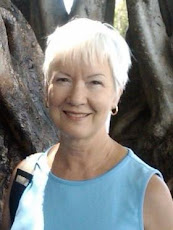

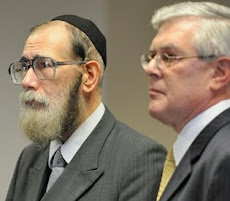

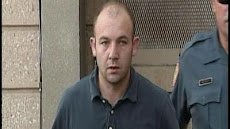









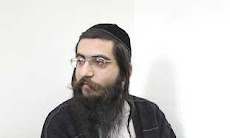





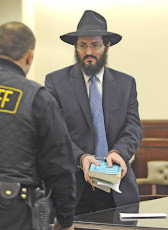














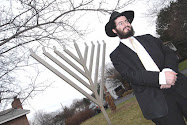




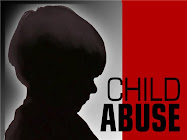













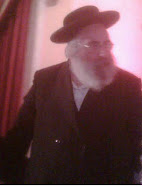



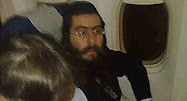




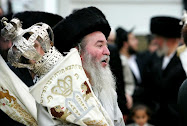


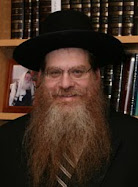












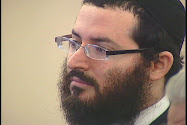
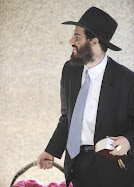
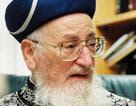









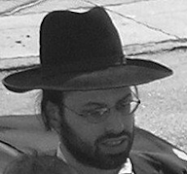

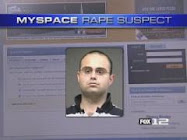









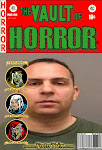












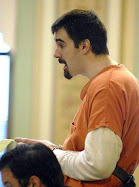


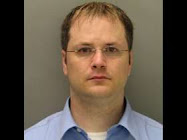


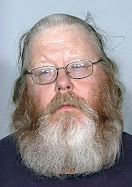

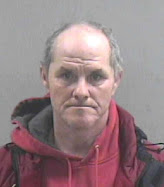
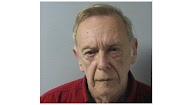
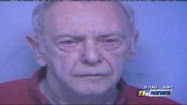













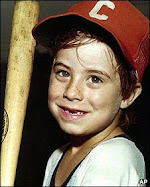

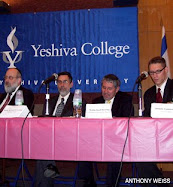





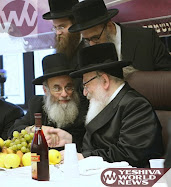
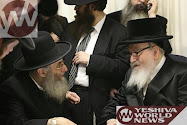
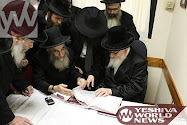









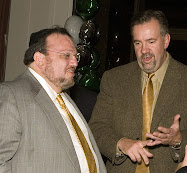
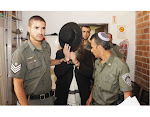



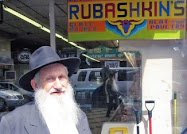















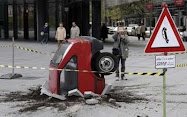










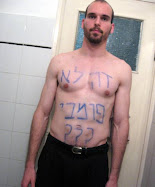
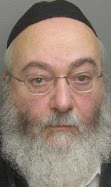

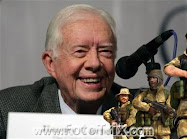










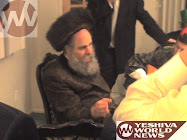






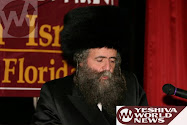


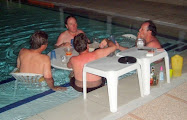

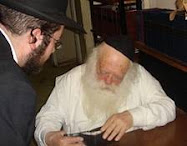

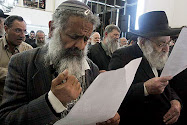
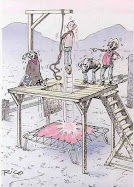
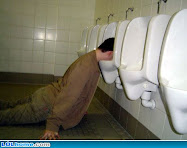



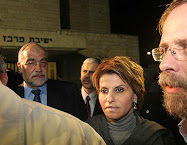
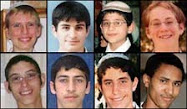
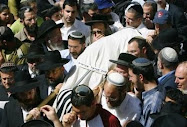
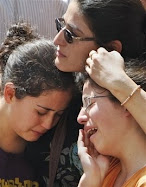
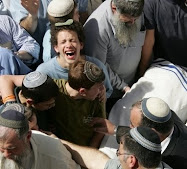
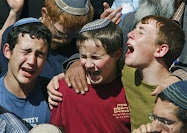
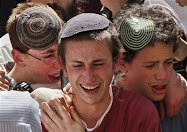
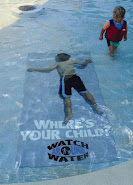









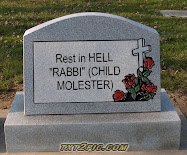
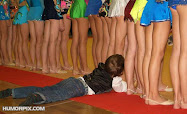







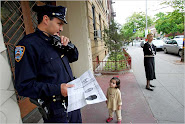















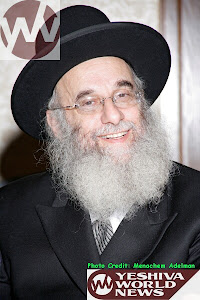
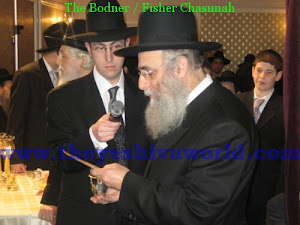
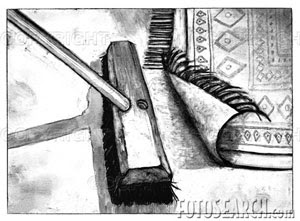
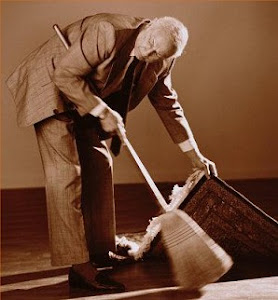








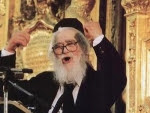
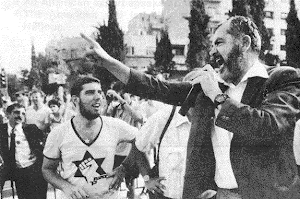
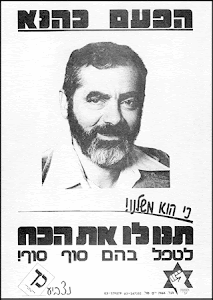
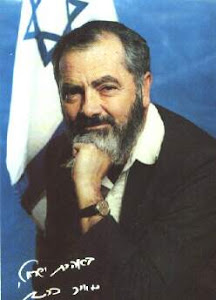
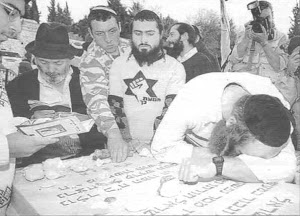
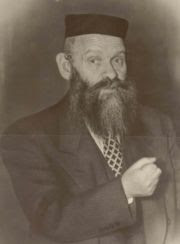




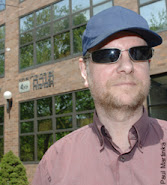


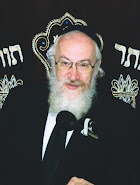





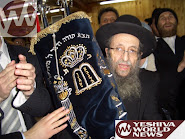

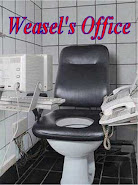

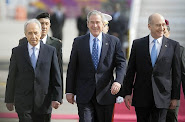
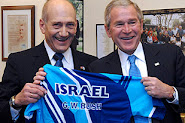
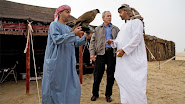


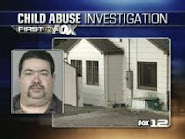
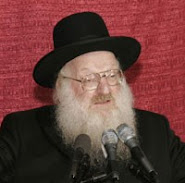

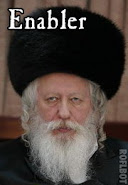













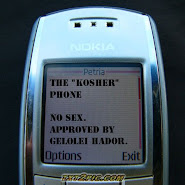





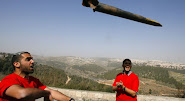
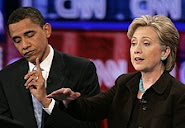


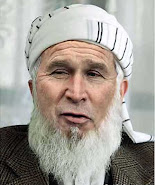









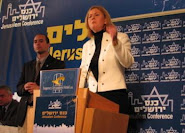


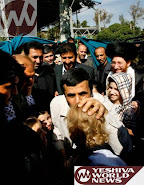
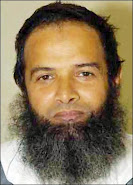


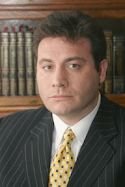


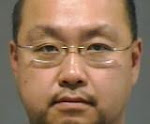
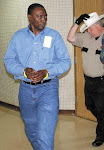

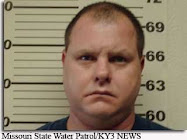



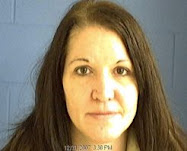
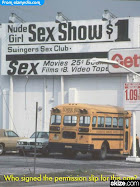

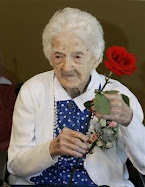

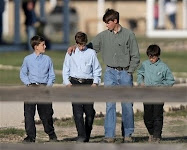



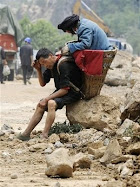



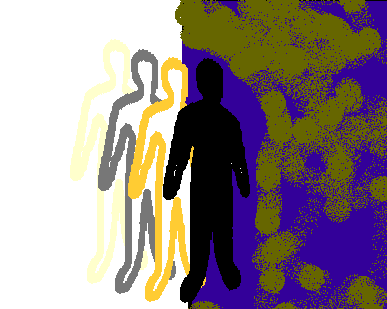

12 comments:
Articles
The Physical, Sexual and Emotional Abuse of Children
by Rabbi Mark Dratch
Originally published by the RCA Roundtable, Nissan 5752
http://www.agudathsholom.org/wrmd-physicalsexualemotionalabuseofchildren.htm#The%20Physical
Words from Rabbi Dratch...
This article also appears in the Domestic Violence Handbook of the Jewish Family Services of Los Angeles and in the Rabbinic Guide for DomesticViolence of Jewish Women International
Jewish children, like children everywhere, are the victims of physical, sexual, and emotional abuse.1 Yet, we fool ourselves into thinking, "it can't happen to us." While recent reports in the media have made public that we are not free of this curse, most of the cases in our families, schools, and institutions go unreported or are hushed up and, hence, true statistics are unavailable. This denial has many sources: the incredulity that such ugly behavior can exist among our people always so proud of our exemplary home-life; the fear that it will bring Jews into disrepute; the apprehension that the child victim will have his/her reputation tarnished; and so on. But such a posture by the community remains inexcusable because we thereby shirk our responsibility to our children, denying the victims of abuse the safe haven of a caring and nurturing home and school, and preventing them from growing up with the physical and psychological security they need and deserve. It is for this sin of omission that our entire community must give din vi-heshbon, a complete and unequivocal reckoning. And it is to protect the bodies and souls of our innocent children that we must speak out and act.
What obligations does Jewish law impose upon us in order to protect our children from actual or potential abusers? May we inform civil authorities? Are there problems of lashon hara or hillul Hashem?
DEFINITIONS OF PHYSICAL, SEXUAL, AND EMOTIONAL ABUSE
Since corporal punishment was viewed as an effective means of shaping the characters of young children, hitting one's child or student as a tool in education and discipline was made an exception to this injunction against such physical assault.2 Verses such as "He that spareth the rod hateth his child, but he who loveth him chasteneth him betimes" (Proverbs 13:24) appear to deem corporal punishment an acceptable, even preferred form of discipline.3 This dispensation is very limited and physical abuse4 and excessive physical punishment5 are prohibited by Torah law. The halakhic parameters of discipline, especially physical punishment, deserve significant attention beyond the scope of this paper.6
Abuse in the form of sexual relations between parents and children and between teachers and students whether consensual or forced, homosexual or heterosexual, are prohibited by the Torah! The Torah not only bans genital penetration, but any form of illicit fondling or inappropriate behavior for the purpose of gratifying sexual desire.8
Abuse, manifested in overly harsh criticism, name calling, and intimidating and degrading speech, is also biblically prohibited,9 even if the victim is a minor.10 Of great significance is the lifelong psychological trauma that impacts on the physical and emotional well-being of victims of physical, sexual, and emotional abuse. The halakhic consequences of mental trauma were considered by Rabbi Moshe Feinstein in evaluating the case of a woman who, by fulfilling certain mitzvot, might suffer dangerous psychological reactions and, hence, be considered pikuach nefesh. In one responsum Rabbi Feinstein permitted eating on Yom Kippur as well as the use of contraception.11 Although these dispensations were granted because of the potential physical harm this woman may inflict upon herself or others, the same apprehension was enunciated by our sages concerning the consequences of physical abuse.12 Thus, both the physical and psychological consequences of abuse must be addressed as cases of pikuach nefesh.
OBLIGATION TO ACT
How for does our obligation of pikuach nefesh in responding to physical abuse extend? The Talmud, Sanhedrin 73a, bases its requirement to save someone under attack upon two verses: "And thou shalt restore him to himself (Deut. 22:2), which dictates personal intervention, and "Thou shalt not stand idly by the blood of your neighbor" (Lev. 19:16), which directs one even to hire others to accomplish the goal. In codifying this low in Hilkhot Rotseiach 1: 14 Rambam derives the obligation from only one verse.' He writes,
Anyone who can save (someone's life) and does not do so transgresses, "Thou shalt not stand idly by the blood of your neighbor." Similarly, if one sees his brother drowning in the sea, accosted by robbers, or attacked by wild animals and can save him personally or can hire others to save him, and does not save him, or he heard non-Jews or informers plotting evil or attempting to entrap another and he does not inform him...transgresses 'Thou shalt not stand idly by the blood of your neighbor.'
Thus, according to Rambam, both the personal and delegated responsibility enjoined by the "neighbor's blood" obligation require the same aggressive, full pursuit of the goal or saving the victim. Lo ta'amod requires a person to exhaust all means in order to effect the saving of the individual.14 This can be accomplished personally, by reporting the matter to the authorities, or by hiring others to accomplish the rescue. However, until the victim has been fully extricated from the dangerous predicament the obligation still obtains.
One who has information to report and fails to do so is in violation of the "neighbor's blood" obligation,15 and of "if he does not utter it then he shall bear his iniquity" (Lev. 5:1).16 While in monetary affairs the witness can wait until summoned, in other matters the witness must come forward voluntarily17 in order to "destroy the evil from your midst." 18
A child must be removed from his home if he is in imminent danger of abuse. The welfare of the child supersedes any right the parent may claim; this is a guiding principle in Jewish legal thinking in the area of child custody. Rema asserts that the general ruling placing daughters in the custody of their mothers is premised on the assumption that such placement is in the child's best interest. If, however, the court judges that a daughter would be better served in the custody of her father, she is placed with him.19 Even if removal from the parental home would lead to the child's placement in a foster home or institution which is not observant of Torah practices (although one must attempt to ensure that placement is in an observant environment if possible), the reporter does not violate "Thou shalt not place a stumbling block before the blind" (Lev. 19:14). Certainly, the physical safety of the child supersedes all other considerations.
Responsa Kiryat Channah, (R. Gershon Koblentz of Metz, printed in 1685), no. 22, holds the teacher financially liable for damages that the child incurs under his care, considering a teacher's salary to be sechar shimur, compensation to protect a child from harm. He maintains that the mitzvah exemption generated by the teacher-student relationship as described by the Mishnah, Makkot 8a, applies only to galut and not to financial liability. Responsa Shevut Yaakov, no. 140, disagrees, holding that the teacher is technically exempt from any liability. He posits that the mitzvah exemption applies to financial liability as well as to galut. However, he concurs that as a matter of social welfare, the teacher should be held responsible for financial compensation. Both authorities agree that this teacher be separated from his students. Thus, not only may we remove an abusive teacher from the classroom; we must remove him lest we be in violation of the biblical ordinance, "Do not stand idly by the blood of your neighbor" (Lev. 19:16). We have policies in our day schools, which remove a religious studies teacher who has violated Shabbat or other ritual practices, it would be absurd to refuse to remove a child abuser from his classroom. Are such teachers not in violation of the Torah as well? Is the sanctity of Shabbat that much more important to us then the innocence and safety of tinokot shel bet Rabban, our school children? Not only must abusive teachers be removed, but also their identities must be made known throughout the entire system of schools in order to prevent future abuse of other children.
The obligation to save those who are sexually abused are even more stringent. A parent or teacher who has intercourse with a child is considered a rodef (pursuer) and must be stopped. 21 This designation of the abuser as rodef mandates even killing him if that is the only way to prevent him from committing a sexual assault.22 Thus, one must certainly do everything possible to guarantee that children are protected from the abuser. Although one who molests children without genital penetration technically does not come under the category of rodef because of the sexual act itself,23 he is considered a rodef because of the psychological trauma and depression he causes to the victim as proven above. Additional obligations to rescue abused children may be derived from such verses as, "Thou shalt surely rebuke thy neighbor" (Lev. 19:16), 24 "Thou shalt love thy neighbor as thyself" (Lev. 19:18),25 "Thou shalt not place a stumbling block before the blind" (Lev. 19:14),26 "Do not stand idly by the blood of your neighbor" (Lev. 19:16), 27 and the biblical obligation to remove potential dangers from our homes recorded in Ketubot 41b. 'R. Nathan said, 'Whence is it derived that a person may not breed a bad dog in his home nor place a shaking ladder in his house? It is said, "Thou shalt not bring blood upon thy house" (Deut. 22:8).'"
In addition to the halakhic requirements of pikuach nefesh and rodef, jurisdictions have laws which require anyone who works with children to report suspicions of abuse and, thus, dina de-malkhuta dina (the law of the country is binding) obtains.28 While dina de-malkhuta dina does apply when the demands of the state call for the violation of Jewish law,29 this paper proves that such reporting not only does not violate Jewish law, but that Jewish law makes such reporting imperative.
LASHON HARA
Is discussing or reporting an alleged abuser a violation of the laws against lashon hara? Consider the Talmudic case of Tuvya and Zigud (Pesahim 113b),
It once happened that Tuvya sinned and Zigud came and testified against him alone before R. Papa. He had Zigud punished. "Tuvya sinned and Zigud is punished!" he exclaimed. He said to him, "Yes, for it is written, 'One witness shall not rise up against a man' (Deut. 19:15), whereas you have testified against him alone; you have merely brought him into ill repute."
Since this testimony was inadmissible, Zigud has done no more than spread ugly rumors about the accused and has violated the prohibition, "Thou shalt not go as a talebearer" (Lev. 19:16).
However, R. Papa's actions in Pesahim seem to be contradicted by the Talmud (Baba Kamma 56a) which condemns even a single individual who withholds evidence as one who is exempt from human judgment but liable to the judgments of Heaven. Rashi observes that since the attestation of one witness can obligate the party to take an oath, such testimony is efficacious: such a statement is not lashon hara and its declaration is imperative. Rema extends the moral imperative of one witness to testify to all cases in which there is a benefit, including preventing another person from sinning.30 In fact, there is no contradiction. The case of Tuvya and Zigud teaches that if the sin has already been committed, the testimony of only one witness is prohibited, constituting a violation of motsi shem ra. Baba Kamma requires testimony because there will be a future benefit.
Despite the permissibility generated by the need to prevent future injury, Hafetz Hayyim prohibits the revelation of any information that would cause harm to the accused that is not based on bonafide evidence worthy of a court of Iaw.31 This prevents an innocent person from becoming the victim of false accusations and slander.32 This restriction severely hinders the revelation of instances of child abuse where the only confirmation of the abuse is the statements of minors whose veracity is unreliable, as they are generally considered as unfit witnesses,33 or circumstantial physical evidence. However, because confidential reports to agencies responsible for investigating such allegations will not harm a person's reputation and because the testimony of children, supported by significant suspicions, may be acceptable testimony,34 this restriction does not prevent the proper prosecution of abusers or endanger the well being of children. In addition, when physical and mental pikuach nefesh is involved, one must, after careful deliberation and consideration of the evidence and its consequences, reveal serious suspicions.
Thus, in cases of child abuse, where, after careful evaluation of the evidence it is believed that abuse has occurred, there is no prohibition of rehilut-- even outside of the judiciary process. On the contrary, it is a mitzvah to inform others so as to protect them and their families from possible harm. Hafetz Hayyim, rejecting the possible objections of those who would deem this an unwarranted leniency, states that withholding such information is tantamount to withholding testimony in a court of law and is prohibited by "Thou shalt not stand idly by the blood of thy brother" (Lev. 19:16).35 This obligation to reveal this information holds: even outside of court proceedings;36 even if the informer is the sole source of information; even if the statement is based solely upon hearsay; and even if the abuser promises not to harm anyone else if there is concern that he cannot be trusted.37
INFORMING CIVIL AUTHORITIES AND HILLUL HASHEM
Based on the verse, "These are the judgments which you shall place before them: (Ex. 21:1), Jewish law prohibits adjudication by Jews in non-Jewish courts.38 Rambam, elaborating on the severity of this sin, claims that "whoever adjudicates in a non-Jewish court ... is wicked and it is as though he has reviled, blasphemed, and rebelled against the law of Moses." 39
Many explain that the prohibition of mesirah, the reporting of a fellow Jew to civil authorities, is for the purpose of privileging the Jewish legal system over those of others. All legal matters concerning Jews should be redressed in a Jewish court according to Jewish law. However, there are many reasons why this prohibition does not apply in the case of child abuse.
1. Arukh HaShulhan maintains that mesirah was prohibited because of the nature of autocratic governments under which Jews lived throughout much of our history. Such informing often led to dangerous persecution of the entire Jewish Community. He posits that this injunction no longer applies in those communities in which the government is generally fair and non-discriminatory.40 Accordingly, it is obligatory in the Western world today to inform the civil authorities about child abusers.
2. The prohibition of mesirah applies only when testimony assists civil authorities in illegally obtaining the money of another Jew, not when it aids a non-Jewish government in fulfilling such rightful duties as collecting taxes and punishing criminals. When, however, the information concerns the criminal activities of a fellow Jew-- as long as the Jewish criminal has also violated a Torah law, and even if the punishment will be more severe than the Torah prescribes 41 -- the ban of mesirah does not apply.42
3. Even should one hold that the prohibition of mesirah is relevant today, reporting child abusers to civil authorities is nevertheless mandatory. According to Rema, even when the prohibition of mesirah is in force, "a person who attacks others should be punished. If the Jewish authorities do not have the power to punish him, he must be punished by the civil authorities."43 Our Batei Din today have neither the power nor the authority to handle such matters.
4. Shulhan Arukh rules that the prohibition of mesirah restricts an individual who is being harassed from making a report to the civil authorities. However, when there is a meitzar hatzibbur (public menace), mesirah is permissible.44 Child abusers and molesters clearly endanger the welfare of many children with whom they have contact.45
5. The concern of hillul Hashem (desecrating God's Name) has also been raised as an objection to the reporting of Jewish child abusers, i.e., it would be disgraceful for a Jew, especially an Orthodox one, to be tried publicly for such an offense and a hillul Hashem to resort to non-Jewish courts.46 However, the problem of hillul Hashem cuts both ways. Not reporting or testifying about such abuse, when such is required by civil law, is classified by Rosh as hillul HaShem.47 Although, according to Shulhan Arukh, the desecration of God's Name occurs only in those cases when Jewish witnesses have been specifically designated by the non-Jews to testify, 48 Bach maintains that Rosh's position applies in our own day even when such witnesses have not been officially summoned because of the danger to Jewish lives that may subsequently ensue by withholding information. Certainly, in countries where physicians, teachers, and youth workers are required by law to report suspicions of child abuse, it would be a hillul Hashem and a violation of dina de-malkhuta dina to withhold such information.
The Mishnah, Avot 4:4, reminds us that sequestering a hillul Hashem will always be unsuccessful: "Whoever desecrates the name of Heaven in private will ultimately be punished in public, whether the desecration was committed unintentionally or intentionally." Hence, a conspiracy to conceal information about abuse will ultimately be made public, creating an even greater hillul Hashem. The greater severity of the hillul Hashem in concealing the information can be further supported by the Talmud, Yoma 86b, which maintains that "one should expose hypocrites to prevent the desecration of the Name.49 Rashi explains that the reason for this disclosure is that people, thinking that this person is righteous, may learn from his behavior. Rambam is of the opinion that after unsuccessful attempts to correct the matter privately, public remonstration and broadcasting of the outrage is required. There is no concern about the hillul Hashem of exposing the offense.
For those who maintain a stricter interpretation of the prohibition of mesirah, there is yet another means by which to enable reporting: if a case originally brought before a Bet Din is recommended by the Jewish court for adjudication in a civil court, the prohibition of mesirah does not apply.50 The Rabbinical Council of America should either authorize its Bet Din or establish a special Bet Din to hear cases of alleged abuse and to make appropriate recommendations.51
NOTES
1. Two informative articles appeared in Ten Da'at, Sivan 5748: "Child Abuse: A School Meets a Crisis" by Rabbi William S. Atshul and "Identifying the Abused Child: The Role of Day School Educators" by Dr. David Pelcovitz.
2. Makkot 8a.
3. See also Proverbs 3:11-12, 10:13, 19:18, 19:29, 20:30, 26:3, 29:15, 29:17. For a collection of rabbinic statements concerning corporal punishment see Zvi Elimelekh Bloom, Hanhagot HaHinukh (Jerusalem, 5741), pp. 140-158.
4. Hilkhot Hovel uMazik 5:1; Yoreh De'ah 450:1.
5. Hilkhot Talmud Torah 2:2; Yoreh De'ah 240:10: Kitzur Shulhan Arukh 165:7.
6. The parameters and limitation of corporal punishment are briefly analyzed by Rabbi Gedclia Dov Schwartz in "The Abused Child: Halachic Insights," Ten Da'at, Sivan 5748.
7. Leviticus, chapter 18.
8. Shabbat 13a; Hilkhot Issurei Bi'ah 2 1:1: Sefer HaMitzvot, prohibition no, 353 and Megilat Esther; Sefer Mitzvot Gadol, prohibition no. 126: Sefer HaHinukh, no. 188; Even HaEzer 20:1. Others quote opinions that maintain that intimacy without penetration is rabbinically forbidden, see Ramban on Shabbat 13a and on Sefer HaMitzvot, ibid. (Ramban himself may hold that the prohibition is biblical): Zohar HaRakiah of Rashbatz, Prohibition no. 11. See Biur haGra 20: 1.
9. "And ye shall not wrong one another," Leviticus 25:17. See Me'irat Einayim to Hoshen Mishpat 420, no. 49.
10. Baba Kamma 90a; Hilkhot Hovel uMazik 3:5; Hoshen Mishpat 420:38.
11. Iggerot Moshe, Even HaEzer IV, no.68.
12. Masekhet Semahot, chapter 2: Kitzur Shulhan Arukh 165:7; Hiddushei R. Akiva Eiger, Yoreh De'ah 240:20.
13. Minhat Hinukh, no. 237 questions why Rambam ignores the "restoration obligation"..He offers no resolution. See Migdal Oz on Rambam and my article, "His Money or Her Life? Heinz's Dilemma in Jewish Law,' Journal of Halacha and Contemporary Society, Vol. XX. Fall 1990.
14. Rashi, Sanhedrin 73a, s.v. lo ta'amod. Rambam, Hilkhot Rotzeich 1:15, adds both affirmative and prohibitive injunctions to this obligation: "And thou shalt cut off her hand, thine eye shall have no pity' (Deut. 25:12).
15. Sifra, Arukh Hashulhan, Hoshen Mishpat 28:4
16. Hilkhot Edut 1:1.
17. Kesef Mishnah to Hilkhot Edut 1:1.
18. Rosh to Makkot, chapter 1, no. 1.
19. Even HaEzer 82:7. See also Radbaz 1: 123; Responsa Darkei No'am, Even HaEzer no. 126; Responsa Mishpetei Shmuel, no. 90. According to Tosaphot, Sanhedrin 72b, s.v. kan be-av al ha-ben, if a father clearly lacks compassion for his child, the child may kill him in self-defense. See also Maggid Mishnah to Hilkhot Geneivah 9: 10. See Gedalich Aharon Rabinowitz. "Takkonot Banim Mukkim al yedei HaHorim." in Halakhah uRefuah, Moshe Hirshler, ed., (Chicago: Bet Midrash Latorah, 5740), pp. 336-48.
2O. Dr. Abraham Abraham in Nishmat Avraham, Vol. IV, p. 208, cites Rabbi Eliezer Waldenberg who allows placement of abused children in a non-observant environment because: 1) The reporter is only a gorem, he is not personally facilitating the placement: 2) There is a chance that the government agency will place the child in an observant environment: and 3) As a minor, the abused is not obliged to fulfill the mitzvot. At the age of Bar Mitzvah he may find himself in an observant environment. Rabbis Auerbach and Elyashev make similar recommendations. However. since physical and psychological pikuach nefesh is involved, such reasoning seems unnecessary,
21. Killing a rodef is permissible only to prevent future abuse, not to punish past crimes.
22. Sanhedrin 73a; Hilkhot Rotzeich 1:10; Hoshen Mishpat 425:3-4.
23. Sanhedrin 73a; and Tosaphot, s.v. hayavei keritut.
24. Arakhin 16b; Hilkhot De'ot 6:6-7.
25. Shabbot 31a; Hilkhot De'ot 6:3.
26. Avodah Zarah 6b; Hilkhot Rotzeiah 12:14.
27. Sanhedrin 73a;: Hilkhot Rotzeiah 1:14.
28. Gloss of Rema to Hoshen Mishpat 369:11, "Dina de-malkhuta dina applied ... where the legislation protects the welfare of the citizens.' See Shmuel Shiloh, Dina De-Malkhuta Dina, (Jerusalem: 5735). pp. 115, 147-149, 187ff.
29. Siftei Kohen to Hoshen Mishpat 73, no. 39 and Responsa Chatam Sofer, Hoshen Mishpat, no. 44.
30. Gloss to Hoshen Mishpat 28:1.
31. Hafetz Hayyim, Be'er Mayyim Hayyim, Hilkhot Rehilut, kelal 7, no. 20.
32. Be'er Mayyim Hayyim, Hilkhot Rehilut, Kelal 9, no. 20.
33. Hilkhot Edut 9:1; Hoshen Mishpat 35:1.
34. Gloss of Rema to Hoshen Mishpat 35:14 which, under certain circumstances, accepts minors as eidei birrur based on a Takkanat kadmonim ascribed to either Rabbeinu Tam or Rabbeinu Gershom Me'Or haGolah.
35. Be'er Mayyim Hayyim, Hilkhot Rehilut. kelal 9, no. 1.
36. Hilkhot Rehilut, kelal 9, no. 3.
37. Hilkhot Rehilut, kelal 9, no. 3 and Be'er Mayyim Hayyim nos. 9 and 10.
38. Gittin 88b.
39. Hilkhot Sanhedrin 26:7. For discussions of the prohibition of litigating in secular courts see Herschel Schachter, "Dina deMaIchusa Dina." Journal of Halacha and Contemporary Society, Vol. 1, no. 1. and Simcha Krauss, "Litigation in Secular Courts.' Journal of Halacha and Contemporary Society, Vol. 11, no. 1.
4O. Arukh HaShulhan, Hoshen Mishpat 388:7. This source is cited authoritatively by Rabbi Gedalia Dov Schwartz in "The Abused Child: Halakhic Insights." Ten Da'at, Sivan 5748. p. 12.
41. RaN to Sanhediin 46a. See, however, Responsa Rema, no. 88, who maintains that according to Tosaphot, Baba Kamma 114a, s.v., ve-lo, if the punishment is greater than the Torah prescribes, there is a prohibition of mesirah.
42. Herschel Schachter, "Dina deMalchuso, Dina," p. 118.
43. Hoshen Mishpat 338:7 and Shakh, no. 45. See also Gloss of Rema to Hoshen Mishpat 338:9; B'nei Hayei and Maharam miRiszburg cited in Pahad Yitzhak, Maarekhet Hoveil Behaveiro.
44. Hoshen Mishpat 338:12 according to the text quoted by Shakh, no. 59 and Gra no. 71.
45. See statement of Rabbi Waldenberg quoted in Nishmat Avraham, Vol. IV, p. 209.
46. See Responsa Binyamin Zev, no. 282 and Responsa Ba'i Hayi, Hoshen, Mishpat no. 158.
47. Rosh to Baba Kamma, chapter 10, no. 14.
48. Shulhan Arukh, Hoshen Mishpat 28:3.
49. See also Hilkhot De'ot 6:8
50. Hoshen Mishpat 26:2.
51. Some have raised the objection of reporting child abusers for fear of the dangers of sexual molestation or life-threatening attacks they may face in jail. First, is it better not to report, allow him to remain free, and to subject innocent children to more certain abuse by this criminal? Second, reporting suspicions of abuse, and even testifying in a civil court, is not the proximate cause of such risk: Too often the system fails to incarcerate these perpetrators; the reporting only starts a long process that may lead to incarceration: whatever attacks occur are perpetrated by another person. The restriction of "Thou shaft not place a stumbling block" (Lev. 19:14) does not obtain. (For a discussion of the parameters of the prohibition of lifnei iveir see my 'The Politics of Selecting a Political Candidate,' Journal of Halacha and Contemporary Society, Vol. XI, Spring 1986, pp. 5-18.) In addition, the reporter is merely a gerama (indirect cause) for any subsequent difficulties that may occur and holds no liability. For a discussion of the parameters of gerama see my "suing Your Rabbi: Clergy Malpractice in Jewish Law," Journal of Halachah and Contemporary Society, Vol. XVIII, Fall 1989, pp. 5-18.
Custody Case Over Son Of Hatzalah Executive
Suit alleges 16-year-old ‘being abused’ at Jamaica facility.
by Stewart Ain
Staff Writer
A bitter custody case centered on a controversial rehabilitation center in Jamaica for troubled youth has embroiled the U.S. State Department, Israel and the CEO of the Hatzalah Volunteer Ambulance Corps here.
At the center of the controversy is Isaac Hersh, 16, who, according to a federal lawsuit, was handcuffed and forcibly dragged from his parents’ Brooklyn home at 5 a.m. on June 13 by two burly men. He was then taken to a school in Jamaica called Tranquility Bay.
The suit, filed by the Washington Center for Peace and Justice, a nonprofit organization dedicated to assisting victims of injustice, alleges that an eyewitness at the facility saw Hersh “being abused by the staff.” The suit claims that there have been “numerous” other documented cases
of abuse of youths there.
A former associate of the school, Ken Kay, called the allegations “ludicrous.”
The suit alleges that the “health and safety” of Hersh are in jeopardy and it seeks to compel the State Department to visit him and render him medical care. Named as defendants are the State Department and the teen’s parents, Michael and Miriam Hersh. The former has been the CEO of Chevra Hatzalah Volunteer Ambulance Corps for the past five months.
Meanwhile, the boy’s aunt and uncle, Rosa and Elliott Greher of Silver Spring, Md., are in Brooklyn Family Court seeking to wrest custody of the teen from his parents. In the same court, the youngster’s grandparents, Rafael and Rifka Cohen of Queens, are seeking visitation rights. A May 28 trial is scheduled.
“My only interest is the well-being of Isaac Hersh,” said Rafael Cohen. “I have no involvement in the federal suit.”
He said the custody case was begun “after the parents were willing to voluntarily relinquish custody.” He declined to say what changed their minds.
Asked what would happen if the judge revokes the parents’ custody since U.S. court rulings are unenforceable in Jamaica, Cohen said: “We will have to cross that bridge as we come to it.”
His lawyer, Leah Shedlo, said the Cohens have not spoken with Isaac for about two years. Asked about reports that Isaac has sent a letter home saying he was fine and being treated well, she said she understood that the “children are required to send these letters home. I have spoken with some [former] students and they confirmed it.”
Shedlo said also that Isaac’s court-appointed guardian had not spoken with him as of the last court date in January.
The Hersh’s lawyer, Shlomo Mostofsky, declined comment.
David Shipper, the attorney for Chevra Hatzalah, said his organization is “carefully monitoring” the two court cases, “taking into account the seriousness of the allegations.”
The federal suit contends that Michael Hersh was charged with child abuse by Israeli authorities while the family was living there several years ago. It was alleged that Hersh forced Isaac and his twin brother Shlomo to take medicine without a prescription. The drug was designed “to control them,” the suit said, adding that the family then “abruptly returned to New York.”
Ken Kay, president of the now defunct Worldwide Association of Specialty Programs and Schools, said that until two years ago his organization had provided services to Tranquility Bay and that his son used to be its director. He denied that youngsters there are abused.
“They are there because they do not function well and have been in life-threatening situations,” he said. “It is a facility that is highly structured because the kids have lax structure.”
Asked about the complaints of abuse posted on the Web by former students, Kay said: “Those who don’t complete the program continue to be angry and mean. ... This is a character-building program accredited by the Northwestern Association of Accredited Schools.”
He said Jamaican officials and representatives from the American consulate “regularly visit and if there was abuse there, they would have reported it. ... I’m very comfortable with Tranquility Bay. I think it’s a good school.”
Israel, human rights and the silence of [most] American Jews
Filed under Israeli politics, Judaism, Jewish diaspora, IDF/Military, Opinion Editorials, Israeli Palestinian relations, Palestinian politics on 3/28/2008 By: .
Those who empathize with the plight of Palestinians under occupation are often puzzled by American Jews’ silence in the face of Palestinian suffering, especially when the suffering results from Israeli actions that much of the world deems to be human rights abuses. A whole industry exists to monitor and refute human rights NGOs whenever they set their signs on Israel. Worse, even mentioning Palestinian misfortunes is suspect in some quarters, as Barack Obama has learned.
But it is not just the pro-Israel right wingers and centrists who either defend or mutely accept the way Israelis treat their neighbors. It is also my camp, the liberals who crave compromise. Some of us marched against the Vietnam war and even against the Iraq war. Some of us give money to help victims in Darfur and shelters for battered women here at home. If we are within the Jewish communal tent, not enough of us can bring ourselves to say very much out loud about the battering of an entire people.
I include myself in this category, guilty as charged, looking back on my own reactions to sundry allegations of Israel’s human rights violations. I think it is important for American Jews who support Israel to stop suppressing their moral instincts, to stop ignoring what is best within themselves, and to start finding a language, a vocabulary to acknowledge the horrors of occupation. But before providing a prescription, we need the diagnosis.
“It blows my mind that my Jewish brothers and sisters, who are with me on Darfur, who were with me on South Africa, can’t bend themselves to deal with injustice to the Palestinians,” said a Protestant minister whom I interviewed for my book. “I just never understood it.”
One simple answer is that American Jews who agree with the minister on most issues view the realities of the region through an entirely different prism, which reflects Israelis’ sense of permanent vulnerability and their fierce determination not to be vulnerable.
American Jews who see themselves as ethical and caring can usually find reasonable explanations and justifications for Israeli activities that the world abhors. The core argument is the same one used in Israel: what appears to be cruel and unjust behavior is usually an unfortunate, unavoidable consequence of The Situation that Israelis and Arabs are mired in. Plus, we have a rooting interest in information and arguments that prop up our craving to believe in the Israelis, while others have a rooting interest in finding ways to blame them. The raw truth is usually the victim.
Object to the missiles that repeatedly killed non-combatants in Gaza or Lebanon, and you will be assured that Israel has done everything possible to avoid collateral damage, Israel has been much more careful about shedding innocent blood than its adversaries, Israel is perfectly within its rights under the Geneva convention to go after enemy combatants that hide among civilians. Besides, you will be told, we can’t be armchair moralists judging Israelis by western, humanistic standards; they live in a tough neighborhood where there is no respect for the weak…Look at how the Lebanese army shelled Palestinian refugee camps unmercifully a few months ago in their fight with militant jihadists..I’ve made those arguments.
Object to anything that al-Jazeera decides to transform into yet another symbol of Zionist bestiality, and eventually you are likely to hear evidence that the truth has been distorted by Palestinian propagandists and their media allies. When Israel assaulted the West Bank village of Jenin during the second intifadeh, at first the international media alleged that hundreds of innocent Palestinians had been massacred and that bulldozers had crushed houses and destroyed property for no discernable reason. Later, media and some human rights groups changed their story; they said there had been no massacre, and most of the Palestinian casualties were armed combatants. The truth was probably somewhere in between, but you could almost hear the sounds of Israel’s friends around the world, including me, breathing sighs of relief.
Another reason for our silence is that the world unfairly singles out Israel for its abuses, real or imagined, and ignores even worse behavior by, say, the armies of central Africa or Sri Lanka or the security services of every Arab country. To liberals with a connection to Israel, the intense, remarkably single-minded focus on the Jewish state by the United Nations Human Rights Council and a large swath of the blogosphere is so suspicious, and so offensive, that we feel reluctant to add to the clamor of its avowed enemies. We certainly don’t want to give rhetorical fodder to those who blithely call for tearing down the “apartheid wall” –not changing the route of the security barrier, but obliterating the whole thing– and refuse to acknowledge that Israelis need protection from those who want to blow themselves up in shopping malls and discos.
But sometimes, what we read about or see on our T.V. screens makes it impossible to counter allegations of indefensible Israeli behavior. When that happens, something besides logic and evidence kicks in, we are left with little except a panicky unwillingness to believe Israelis are behaving as badly as people claim.
So, we look the other way if we come across tidbits like the following, from a B’Tselem press releasethis past December:
A survey conducted by the Israeli military and published by leading Israeli daily, Yedioth Ahronoth, found that a quarter of soldiers serving at checkpoints in the West Bank perpetrated or witnessed abuse of Palestinians. In response, B’Tselem, said that the numbers are shocking, but not surprising. The organization commends the military for initiating the survey, but states that physical and verbal abuse of Palestinians by soldiers, particularly at checkpoints, has long become routine. In spite of official condemnations, the military does not do enough to ensure accountability and to deter soldiers from engaging in such behavior.
According to B’Tselem, most soldiers who harm Palestinians are never held accountable. Law enforcement authorities place numerous obstacles on Palestinians who try to complain against security forces personnel and only a small minority of complaints result in charges against those responsible for abuse.
There must be a reasonable explanation,” we try to tell ourselves. “There must be something terribly wrong with the way this story is being told, even if it is the Israeli army itself that is telling it.”
We try to tell ourselves, “there must be a reasonable explanation for the extra-judicial, execution-style killings of four Palestinians sitting in a car in Bethlehem,” as reported today by Richard Silversteinin Tikun Olam. “Ok, it’s suspicious, but war is hell.”
“There must have been a very good, sound military reason for bombing that power plant in Gaza and inflicting darkness for half a day, for months, on a civilian population,” we try to tell ourselves, even though reasonable people called it a clear violation of international law. “And even if it is a war crime,” we tell ourselves, “why say anything? Israel has enough problems, enough enemies…”
After awhile, though, the evidence accumulates and becomes too troubling to be discarded or wished away. The anguished testimony of the Israeli soldiers in “Breaking the Silence” makes a mockery of willfull denial. “Breaking the Silence” is an explicitly non-political organization that just lets those who have served in the territories speak for themselves about the level of brutality and wanton cruelty. They are not refuseniks. Most of them return to the IDF every year for reserve duty. They want their own society to wake up to what Israeli soldiers are being asked to do, and, sadly, what some of them eagerly volunteer to do. Read what they have to say on the group’s web site.
When the pro-Israel left in this country confronts what Palestinians are subjected to, the standard response is that there is no such thing as a benign occupation. Unless and until there is a political solution, we assert, morally grounded Israeli soldiers and border police will be forced into circumstances where it is difficult and sometimes impossible to be humane, it is difficult and sometimes impossible to be good. I use that argument, all the time, and it is true…up to a point.
But lately, I am tired of relying upon it as the exclusive answer. The problem is not merely that the brutality and humiliation inflicted on Palestinians is an inevitable consequence of occupation; the problem is that is just plain WRONG. Why can’t we say that? What happened to our moral compass?
Yes, those who focus only on Israeli behavior without putting it into context, without appreciating that steps must be taken to protect Israel’s borders, have also lost their moral compass. Yes, the Palestinians have in many ways brought this situation upon themselves [e.g, there used to be a vocal peace camp in Israel; it was shattered by the second Palestinian intifadeh. Now, the prospect of Hamas rockets being hurled at Tel Aviv from the West Bank has made it even harder to put that dovish, Humpty Dumpty back together again]. But once that context is affirmed, the reasons for decrying the brutality and humiliation become compelling and the rationalizations for saying nothing become very hollow.
Rabbis for Human Rightsis an Israeli organization that does not hesitate to call some Israeli policies morally reprehensible and contrary to Torah values. A few American rabbis, like Arthur Waskow, are associated with it. But thus far, its message has been unheard or barely noticed, let alone echoed, in the organized American Jewish community.
The unwillingness of American Jews to say, simply, “This is wrong!” has many consequences, in addition to the way it contributes to the corrosion of souls and hearts. What should also be of concern to the mainstream Jewish community is that the silence contributes to the alienation of Jewish college students and young adults from anything remotely connected to Israel. That does not matter to the anti-Zionists who believe the whole enterprise of Israel is illegitimate, but it should matter to anyone who wants to help fix what is broken in Israel.
Yes, speaking out forcefully against Israeli policies and behaviors will add fuel to the fiery rhetoric of those who don’t want the Jewish state to exist. That is undeniable; it is a problem and I have never come up with a solution to it. But a greater risk is that an entire generation of Diaspora Jews will want nothing more to do with Israel. There are a host of Israeli organizations trying their best to monitor and change unjust Israeli policies; instead of connecting our young people with those groups and showing there is a way to be pro-Israel and true to their ideals and values, much of the community either derides or shuns those groups. That is why the message from Israelis like Rabbi David Froman, one of the more articulate activists in Rabbis for Human Rights, is decidedly Zionist. academics, he tells us:
And yet, we know in our hearts of hearts that while such boycotts are not justified on the universal plain of comparisons, there are more than a few elements of truth in what these hypocrites claim. For one segment of the population over whom we have responsibility, we have abrogated any semblance of democracy. It is especially painful that some in South Africa have joined the fray of those who boycott us, because of that country’s moral authority - given how blacks suffered years of unspeakable oppression under white minority rule.
But how would one describe certain things we are doing in the West Bank that have virtually no security value - checkpoints between Palestinian villages and within Palestinians cities; separate roads for Palestinians; thousands of Palestinians arrested under administrative detention; confiscation of Palestinian property for illegal Jewish settlements; a twisted route for Israel’s security barrier that separates Palestinians from their lands and divides villages in half; administrative home demolitions; covert protection for Jewish settlers who harass Palestinians tending their agricultural fields; preventing Israelis who marry Palestinians from living in Israel; banning Palestinians from swimming in natural springs along the Dead Sea?
And yet, despite the above, Israel’s present situation is still not politically analogous to South Africa’s history of discrimination; and so, we confidently argue that “apartheid” is not an appropriate term to apply to what we are doing in the West Bank. But what term would one choose to define a privileged protectionism for a few thousand Jews in the West Bank over a separate and unequal existence for over two million Palestinians?
…We have shamed ourselves as a Jewish state that sought to educate the world that we would not be a nation like other nations and that the Zionist enterprise would fashion a society based on a prophetic vision of social justice. Instead, we have created a moral morass - and, if it takes the hypocritical self-righteousness of some foreign pseudo-intellectuals and pig-headed unionists to open our eyes and alter this unacceptable reality, then something positive will ultimately be served.
Something positive will be served if Americans who want both Israel and Palestine to thrive, side by side, stop keeping their eyes closed and their mouths shut.
The opinions and views articulated by the author do not necessarily reflect those of Israel e News.
I want nothing to do with the reformeisters. They think they are Jewish. I'm a real Jew even though I act like a hypocrite all the time.
------------------------------
Reform Jewish Leader Calls for Fair Financial Aid System
Saperstein: Rejecting the educational financial aid applications of drug offenders across the board is an arbitrary punishment that violates moral principles of rehabilitation, fairness and proportion and exacerbates institutionalized racism in the criminal justice system.
Contact: Alexis Rice or Michael Weiner 202-387-2800
WASHINGTON, May 21, 2002 - Rabbi David Saperstein, Director of the Religious Action Center of Reform Judaism, issued the following statement calling on Congress to repeal the law denying federal financial aid to students with drug convictions.
The complete statement follows:
The Commission on Social Action of Reform Judaism, the public policy body of North America's largest organized Jewish community, is pleased to join with a broad coalition of education, civil rights, substance abuse, religious and other organizations in opposing a provision of the Higher Education Act denying federal financial aid to students solely on the basis of drug convictions. We urge Members of the House to support H.R. 786, a bill introduced by Representative Barney Frank (D-MA) that would overturn the provision.
Jewish tradition recognizes that those who do wrong should be punished, but they should also be encouraged to repent and improve themselves and their lives. As the prophet Ezekiel asserted, "I have no pleasure in the death of the wicked, but that the wicked turn from his ways and live" (Ezekiel 33:11). Denying an education to past drug offenders who seek to become productive members of society is both cruel and illogical. The appropriate venues for meting out punishment are not classrooms, but courtrooms.
Rejecting the educational financial aid applications of drug offenders across the board is an arbitrary punishment that violates moral principles of rehabilitation, fairness and proportion and exacerbates institutionalized racism in the criminal justice system. The ratio of those prosecuted for drug offenses who are people of color is already much higher than the actual percentage of drug offenders among minority populations. The provision extends this discrepancy into the arena of higher education. Likewise, the provision discriminates on the basis of class, preventing poor offenders from attaining an education when those with financial resources suffer no additional punishment.
In a society committed to equal justice under the law, we can no longer allow these inequities to continue. We urge the House to approve H.R. 786 or equivalent legislation as soon as possible.
###
The Religious Action Center of Reform Judaism is the Washington office of the Union of American Hebrew Congregations (UAHC) , whose over 900 congregations across North America encompass 1.5 million Reform Jews , and the Central Conference of American Rabbis(CCAR) whose membership includes over 1800 Reform rabbis .
The Jerusalem Post Internet Edition
Middle Israel: When Ehud Olmert met Mercaz Harav
Amotz Asa-El , THE JERUSALEM POST Mar. 27, 2008
What can be more devastating than rejection? Ask the fat boy benched out of his classmates' crucial basketball match, or the stammering girl politely excluded from the spelling bee, not to mention the unsuspecting wife who accidentally saw her husband admiring a coastal sunset in another woman's arms.
Rejection can hurt even more sharply than the failure, defeat or loss that cause it, for those are attributable to mistakes, circumstances, luck or providence, but rejection hits smack at the solar plexus making one feel - with or without good reason - scorned, abandoned and worthless.
One can therefore understand the self-pitying Ehud Olmert's reported sense of "What do they want from me?" following Mercaz Harav's cancelation of its invitation for him to visit the school following the murder of eight of its students by a terrorist earlier this month. "Olmert sure was hurt," his aides told Yediot Aharonot bitterly, "he had no intentions of speaking there, all he wanted to do was convey his condolences to a public he very much appreciates."
Don't they have a point?
How is it that even after Olmert goes to Ashkelon and tells its residents they are in for the long haul, he gets attacked for simply telling it as it is? Why does Olmert deserve to be resented so widely and so deeply, from Right to Left and from North to South?
Why? Because he asked for it.
FEW PLACES in Israel could be more distant from Ehud Olmert's value system than Mercaz Harav. One has to understand that secluded planet's unique blending of asceticism, Messianism and chauvinism to realize just how many light years apart it is from Olmert's hedonism, greed and nihilism.
What do this shrine's pious scholars know about biting cigars, buying castles, dealing jobs, disbursing billions, flying first class, patronizing haute cuisine restaurants, inhabiting luxury hotel suites, or mediating between oligarchs and soccer clubs? And never mind the gaps in their routines - how could the man who turned the West Bank's abandonment into an ideal expect warmth from those who worship its possession?
Simple: as mayor of Jerusalem, back when he impersonated a Greater Israelite, Olmert was a welcome and frequent guest at Mercaz Harav, whose students and rabbis took his hawkish bravado at face value. It was, after all, a time-honored tradition in this place to gullibly dance ahead of anyone who satisfied this yeshiva's veneration of raw Jewish power, beginning with Moshe Dayan, whose famous adulteries did not prevent his annual red-carpet reception there as a savior of Israel.
Mercaz Harav's theology is indeed problematic.
Though ironically situated around the corner from where Jerusalem's most modernist landmark, the Calatrava string bridge, now stretches its neck, the yeshiva originally founded by British Palestine's first chief rabbi has come to represent a narrow-mindedness that even modern-Orthodox Israelis seldom share, not to mention everyone else. Inspired by Rabbi I.H. Kook's writings, the belief there is that the Zionist enterprise is sacred and Israel's military victories are part of a divine plan which they call "the redemption process" - a curious flipside to the equally naive "peace process."
Middle Israelis never bought this and have been debating the so-called "Kookniks" for decades, arguing that in their confusing of geopolitics and theology, in encouraging settlement in the thick of Palestinian cities, and in leading the value of settlement away from the consensus - they are courting disaster.
Never mind Middle Israelis, almost every contemporary rabbinical heavyweight - from J.B Soloveichik, Ovadia Yosef and Moshe Feinstein to Y.S Elyashiv, Elazar Shach and Aaron Lichtenstein - flatly rejected Mercaz Harav's theology.
Olmert, however, a theologian in his own right, smelled revelation: here, in God's ultimate city upon a hill, will meet those who crave the Golden Dome with those who sculpt the Golden Calf.
AS MAYOR of Jerusalem, Olmert never bothered telling Mercaz Harav's rabbis what he really thought of them and their cult. On the contrary. As long as it served his career, he played ally to the far Right in its relentless efforts to settle in the thick of Jerusalem's Arab neighborhoods, and while at it always offered its activists his trademark hugs, clasps and pats on the back.
Now they tell us he feels rejected. How touching. And how did the people of Mercaz Harav feel when Olmert had mounted police storm their youth at Amona? Had it not been for Olmert and the rest of the expedient right-wingers who, like drug pushers, for decades encouraged religious zealots to do what those politicians would never do themselves - settle beyond the Green Line - Olmert may not have been rejected the way he just was. But having duped these idealists the way he did - it was inevitable, indeed natural, that they respond in kind; for these people may be irrational in their theology, but in their feelings they are like all of us. If anything, it is Olmert's failure to understand them that boggles the mind.
For Olmert, Mercaz Harav was but a detail in a broad picture, one where numerous movements, individuals, parties and institutions were orbiting one man, Olmert, and promoting one cause - Olmert's success. Apparently, he expected them to see their ideas the way he saw them: as disposables, as springboards, as instruments of departure, as positions meant for mere camping rather than nesting, let alone dwelling, not to mention defending.
So now Olmert wonders: "What, I can't even come and pay them condolences? Have my hugs, clasps and pats on the back lost their magic?"
Well, they sure have, Ehud. Back when you succeeded Sharon, we told you: Be Levi Eshkol, the man who - upon succeeding Ben-Gurion - set out to reconcile this society's many antagonists, because he knew he was no Ben-Gurion. You refused to understand you're no Sharon, who possessed the charisma you lack, let alone that you're no Ben-Gurion, who was a man of books and ideas, and that you're no Begin, who believed in what he preached and lived as modestly as his voters.
One blushes at the thought that you actually expected the people to accept you as a preacher of ideas. Well, the people, unlike the sycophants, hacks and horse thieves that surround you, refuse to be confused by your quips, jabs and pats on the shoulder; what they want from their leaders before anything else is conviction, consistency, sincerity and personal example.
In this - we are all Mercaz Harav.
Friday, March 28, 2008; WE38
Lior Liebling talks to God. In synagogue. At school. On the trampoline. The touching documentary "Praying With Lior" follows the Philadelphia boy with Down syndrome and his family in the lead-up to his bar mitzvah. Lior (Hebrew for "my light") prays so much that some wonder if he is a kind of spiritual genius. His father, Rabbi Mordecai Liebling, politely shoots down that notion by responding, "He is a loving child." Still, it's beautiful to see someone -- genius or not, disabled or not -- pray with such uninhibited joy.
Charming as Lior is, this triumphant little movie leaps from good to great by exploring the Liebling family dynamic. Lior's mother, Rabbi Devorah Bartnoff, died of breast cancer in 1997 and the pain of that loss radiates through every scene. Mordecai Liebling has since remarried, and first-time filmmaker Ilana Trachtman (a Rockville native) deftly portrays the sometimes-tension between the stepmother and the children. (Lior amiably sorts it out by calling them Mommy Lynne and Mommy Devorah.) A scene of Lior and his father hugging Devorah's gravestone and bawling is so powerful that it verges on an invasion of privacy.
By the time Lior's bar mitzvah rolls around, we're grieving the loss of his mother, biting our nails during his big speech and wanting to be there to hoist him up on a chair in celebration. In his own way, Lior Liebling inspires the viewer to think about how to bring more light into his own spirituality, family and community. Doesn't that qualify as a small miracle?
-- Rachel Beckman
Praying With Lior Unrated, 88 minutes Contains nothing objectionable. At the Avalon. Praying With Lior Unrated, 88 minutes Contains nothing objectionable. At the Avalon.
March 28, 2008
Cops: Lakewood teen a suspect in Howell robbery
By MARGARET F. BONAFIDE
STAFF WRITER
A 19-year-old Lakewood man has been identified as the suspect sought by authorities in an armed robbery at Reich Jewelers, where two employees were held at gunpoint and forced to fill duffel bags with jewelry.
Law enforcement agencies are searching for fugitive Avraham Rotenberg, 19, of Birch Street, Lakewood, in connection with the Feb. 17 robbery.
Rotenberg is wanted on charges of first-degree armed robbery, theft and possession of a weapon — a shotgun — for an unlawful purpose, according to the arrest warrant, Howell police Detective Eileen Dodd said.
Some of the jewelry was recovered after a Lakewood rabbi received a mysterious call at about 4:30 a.m. March 6 telling him to look outside his door for packages, police said. The rabbi called Lakewood police and reported the call.
Lakewood police responded and found two bags of jewelry outside the home of Rabbi Michael Rottenberg on Heathwood Avenue. The bags contained some of the proceeds from the Reich Jewelry store robbery.
Dodd said Reich Jewelers was robbed about 11:35 a.m. Feb. 17 by Rotenberg, who then fled the store with bags of jewelry.
During the robbery, Rotenberg kept the shotgun trained on the employees while demanding that they fill two duffel bags with jewelry from the display cases and the safe.
There were two employees and two customers in the store at the time of the robbery. The store is located in the Grebow Shopping Center on Route 9, Dodd said. The robber fled in a 2004 Acura TSX with New York tags. The car was found abandoned by Lakewood police off Miller Road in Lakewood the day after the robbery.
Federal marshals and the FBI are looking for Rotenberg in connection with the robbery and as of two weeks ago, he had not used his passport, which is being monitored for use, Dodd said. Rotenberg was last seen in the Howell and Lakewood area on Feb. 22.
Rotenberg, who has a New York driver's license, is listed in the state's wanted persons database but is not listed in the federal wanted person's database until after a grand jury indictment, Dodd said.
That grand jury process is likely to come soon, Dodd said, adding that additional information and records being sought by police may determine if Rotenberg acted alone of if he had an accomplice.
"There are no other suspects at this time," Dodd said. "The investigation is ongoing."
Dodd said that Rotenberg was identified early as a person of interest but evidence collected during the investigation led to the arrest warrant for him.
The jewelry recovered outside the rabbi's home was turned over to the Monmouth County Prosecutor's Office for inventory and forensic testing, Dodd said.
Dodd said that the jewelry which was returned was only part of the proceeds and that authorities believe that Rotenberg kept the remainder of the stash.
Rotenberg is about 6 feet 2 inches tall with a medium build — about 190 to 200 pounds — with brown hair and brown eyes.
Anyone with information is asked to contact Dodd at (732) 938-4575, ext. 2883.
newsday.com/news/local/nassau/ny-liside285628662mar28,0,3265382.story
Experts: Teacher-student sex is abuse, no matter what
BY SOPHIA CHANG AND CHRISTINE ARMARIO
sophia.chang@newsday.com; christine.armario@newsday.com
March 28, 2008
When it comes to teachers and students, there is no such thing as consensual sex, experts said yesterday.
The power differential is too exploitative in those sexual encounters, said Charol Shakeshaft, a former Hofstra University professor who now teaches educational leadership at Virginia Commonwealth University and is an expert on sexual abuse in schools.
"It's a violation of trust and professional boundaries," Shakeshaft said of the March 20 encounter Nassau police say happened between Heather Kennedy, 25, a math teacher at Wantagh High School, and a 16-year-old boy who is a student at the school.
Kennedy was arraigned yesterday on charges of statutory rape and endangering the welfare of a child. The age of sexual consent in New York State is 17, police said.
Even if the boy wasn't in Kennedy's class, Shakeshaft said the mere fact that he attended the same school indicates "sexual exploitation and bad judgment," she said.
And when the teacher is a woman and the student is a boy, the sensationalist aspects of these liaisons are magnified, Shakeshaft said.
"I believe that females get a lot more attention [in the media] because I think it adds another dimension," she said. "People don't seem to think it's child abuse then."
It's a double standard fueled by popular perceptions of older women with younger men, according to Mike Lew, a Brookline, Mass., psychotherapist who has treated and written about survivors of childhood sexual abuse.
"We've been very slow to accept the fact that boys and girls are abused by both men and women," Lew said in an interview after the Feb. 25 arrest of Maria Commins, a Greenport teacher's aide who was charged with raping her son's 15-year-old friend.
"Boys are supposed to be little men," Lew said. "And men are supposed to be up for sex with women under any circumstance. If a boy is abused by a woman, if any part of it was pleasurable ... even if part of that excitement is fear, it tends not to get defined as abuse."
Female offenders often target younger men for a "sense of power," said psychologist Mic Hunter, author of "Abused Boys: The Neglected Victims of Sexual Abuse."
But some offenders don't admit their actions were abusive: Commins told police that she and her victim were in love, and Seattle teacher Mary Kay LeTourneau, 43, married her former sixth-grade pupil after she served 7 1/2 years in prison on charges that she had raped him.
"They believe they're victims or they're equals," said Hollida Wakefield, a psychologist in Northfield, Minn., who has treated sex offenders and victims. "It's hard for them to comprehend that it's criminal."
I'm so scared. I don't want to go to jail!
------------------------------
Teacher Convicted Of Sex Abuse
Contributor: Dave Clark
Email: clark@wmar.com
Last Update: 12:54 pm
Guilty Verdict
A former high school science teacher has been found guilty of two criminal charges in the sexual exploitation of a male student.
A Howard County judge Friday found 53-year-old Alan Beier guilty of second-degree assault and sexual abuse of a minor.
Beier was a science teacher at River Hill High School last year when he was accused of taking inappropriate pictures of the 16-year-old boy. Some of the pictures show the boy without clothes.
Beier is scheduled to be sentenced June 9. He is on home detention until sentencing and faces a trial in a separate case in August.
Woman, Father Settle $8M Sex Abuse Verdict
Friday, Mar 28, 2008 - 01:52 PM
By Associated Press
BIRMINGHAM, Ala. (AP) -- A prominent Alabama businessman ordered to pay $8 million to a daughter who claimed he sexually abused and raped her for years, including the night she was crowned homecoming queen, has settled the case.
Attorneys for Montgomery stockbroker Fred M. Blackmon and his daughter, Louise Plott of Birmingham, declined to reveal details of the settlement, including the amount of any payment.
Allen Hammer, who represented Blackmon, a longtime vice president with Merrill Lynch, says he can only say that the case was settled to the mutual satisfaction of the parties.
In court testimony and a sworn statement, the 35-year-old Plott recounted decades of sexual abuse she said began in her bedroom of the family home in an exclusive neighborhood in Montgomery. Blackmon denied all her claims.
The Associated Press has a policy against naming alleged victims of sexual abuse in most cases, but Plott told AP in an interview in November that she hoped to help other incest victims by telling her story publicly.
We are having our 100th anniversary dinner for YOB this Sunday at ateres chaya hall. Please don't bring up any sex abuse cases to me while I give my divrei chizuk speech. I will be terribly embarrassed and will have to cancel the dinner right then and there!
----------------------------------
March 28, 2008
Senate panel approves bills strengthening sex-abuse laws
Measures aimed at protecting kids
By Peter Smith
psmith@courier-journal.com
Bills that would toughen penalties against Internet predators, sexual abusers and those who fail to report sexual abusers were approved unanimously by the Senate Judiciary Committee yesterday and are expected to pass the full Senate.
Advocates for House Bills 367 and 211 said tougher penalties are needed in the wake of revelations about sexual abuse of children in churches and schools and predators' use of the Internet to harass and make sexual advances to minors.
"Children in our schools, youth sports leagues, 4-H, Scouts etc. deserve to be protected from people in positions of trust and authority," said Shannon Whelan of the group Protect Our Children KY, who applauded both bills.
John Scott, who was sexually abused by a priest in the Archdiocese of Louisville, said he is "relieved that the people are listening."
"We've been up here three years in a row," added Scott, citing previous efforts to strengthen the abuse laws. "It's been very difficult."
HB 211 would make felonies out of several categories of sex crimes against older minors -- offenses that are currently misdemeanors. By making them felonies, the prison sentences can be more severe, and there would be no time limit on when they could be prosecuted.
The bill would also impose progressively stronger penalties each time someone fails to report knowledge of sexual abuse to the authorities.
HB 367 was passed to ban a variety of crimes using new electronic technologies.
It prohibits using any communications system to entice a minor into a sexual offense, bars registered sex offenders from using social-networking sites such as MySpace and Facebook, requires the offenders to provide updated e-mail addresses to authorities and prohibits showing pornography to a minor via Webcam.
The bill also would allow authorities to seek the forfeiture of property used in such cybercrimes. And it would permit the prosecution of anyone soliciting sex from a person they believe to be a minor -- allowing police to arrange stings of predators in which adults pose as minors online.
The two measures are expected to be placed on the Senate's consent calendar for noncontroversial legislation.
Reporter Peter Smith can be reached at (502) 582-4469. Reporter Deborah Yetter contributed to this story.
Anonymous said...
These are some facts that I have not yet seen posted:
#1 - If any one has ever been to the Landuas mikveh erev shabbos they know that Micheal Hirsh is a certified weirdo! His mannerisims and methods of showering and dipping are that of a man with serious issues and possibly sexual misconduct or abuse. He has been known in just his few days at Hatzolah to be way to touchy feelie.
#2 - Any one who knows Rabbi Schechter knows he is not a man to meddle into affairs unless it is something big. This kid is nothing big because RAS has his own screwed up grandkids whom he could care less about. Rather it is the knowledge that Mr. Hirsch has on the money laundering between Fruchthandler and the yeshive that they went way out of the way to make sure he has a very good paying job. Well now this is blowing up in everyones faces. How stupid to have a child beater as CEO of Hatzaloh!! haha..
#3 - His daughter in seminary is being prepared to testify at the trial against him.
#4 - Michael Hirsh's own parents disowned him and threw him out of the house that they own on Avenue M because he refused to stop abusing his children and stop legally trying to kill his 2 twins. His own parents will be testifying against him in this court battle as well. He is a maniac that because those 2 boys have minds of their own he is going biserk!
#5 - His inlaws have also disowned him because he has mentally abused and controls their daughter. They will also be testifying againt their son in law.
After this is posted I am positive that all 5 of these items will be verified numerous times over. When the verification has occured I will continue with some more of the real Hirsch story that people dont know.
1:28 AM, March 28, 2008
Post a Comment